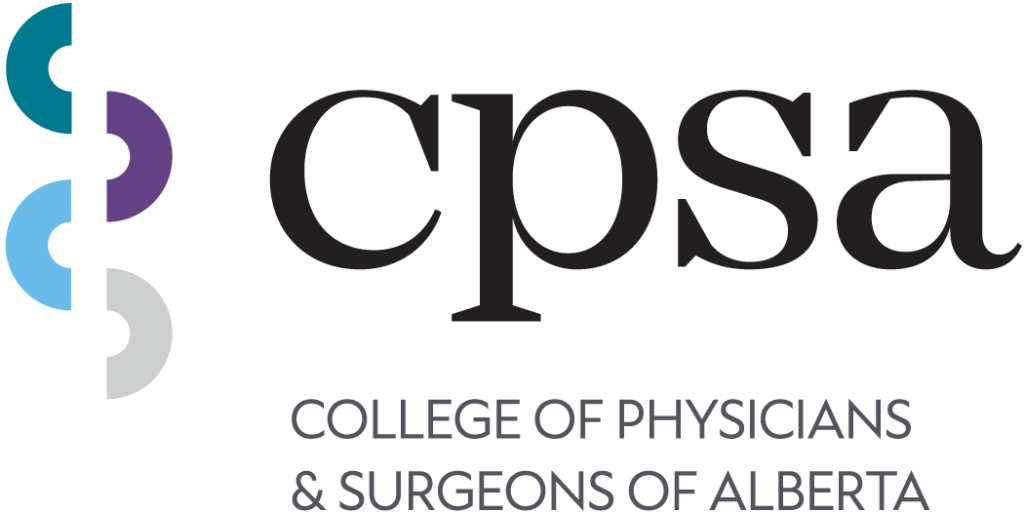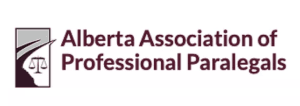I want to...
Training FAQs
While membership will no longer be obligatory for these courses, ADRIA acknowledges the value of fostering a vibrant ADR community. Therefore, we will continue to offer a cost-saving advantage to ADRIA members for the following courses:
· High Conflict Mediation
· Consensus Decision Making
· Restorative Practices
Other benefits such as access to free Learner Sessions and Learning videos will still be limited to Members only. Please see membership advantages to review other items outside of the education program that will remain as member only benefits.
There are no external prerequisites to take our training and our students come from all different backgrounds and levels of formal education.
Individual courses may have their own specific prerequisite courses and most of our training begins with basic conflict management training. Check the course descriptions for admission requirements.
A career in mediation begins with basic training. There are a variety of courses throughout Canada, however, if you were to take your training through ADRIA, you would start with our Communications in ADR course followed by the National Introductory Mediation Course and Practical Ethics for Working Mediators.
Once introductory training is complete, new mediators are encouraged to find opportunities to continually practice and hone their skills. ADRIA offers online Mediation skills practice sessions to its members, which helps integrate your skills while giving you the opportunity to learn by observing other mediators’ styles.
Additional advanced mediation training and specialized training further assist new mediators to enhance their skills.
After completing training and obtaining some experience, new mediators can apply for a mediation designation. New mediators typically start with a Qualified Mediator (Q.Med) designation and more experienced mediators obtain the Chartered Mediator (C.Med) designation.
For more information, see our web pages on how to Earn a Designation and how to become a mediator.
A career in arbitration begins with basic arbitration training. There are a variety of courses that can be found online which teach the basics of arbitration, however if you take your training through ADRIA we have a nationally accredited course called the National Introductory Arbitration Course which results in a certificate from the ADR Institute of Canada. This one course meets the educational requirements for both the Qualified Arbitrator (Q.Arb) and the Chartered Arbitrator (C.Arb) designations.
Learn more on our webpages about how to become an arbitrator.
ADR Practitioners are often self-employed. There are limited paid positions within government or private organizations for mediators and arbitrators. To get on-the-job experience, some practitioners start by gaining experience through community or court dispute resolution programs. Practitioners may train to specialize in a particular area of ADR, such as land disputes or divorce mediation. Different fields of ADR can vary in prospects and income range.
ADR is a small but growing industry and is not a regulated profession. As with any career change, it is recommended that you research the opportunities and demand in your area for ADR services.
For more information you can read our the transcript of our panel on The Path to Success as a Mediator
Policy Document: Payment, Withdrawals, and Transfers
Effective Date: November 8, 2023
Payment & Registration Policy:
Payment is a fundamental requirement for securing enrollment in any course offered by ADR Alberta. With the understanding that significant administrative costs are incurred to support course offerings, the following payment and registration policy outlines the terms and conditions regarding payment deadlines and registration requirements. If a withdrawal, or transfer needs to be requested, please contact education@adralberta.com
- Payment: Payment is due at the time of registration to hold your spot. Registration closes 60 days prior to course start date, unless the course is full. If course is full before that, registration will close once full. If course is not yet full at 60 days, registration may be extended. Check the website to see if registration was extended.
- Refund prior to 60 days: if payment was processed through credit card, you will be refunded the full course cost less 5% to cover the credit card processing fees. If payment is received by e-transfer or cheque this does not apply and a full refund is granted.
- ADRIA Course Cancellation: If ADRIA cancels the course for any reason, full refund will be issued.
Withdrawals:
The withdrawal policy governs the conditions under which a student may withdraw from a course and the resulting refund or non-refund of course fees.
- Withdrawal within 60 Days: If a student chooses to withdraw from a course within 60 days of the course start date, ADRIA will retain 50% of the course payment or $1,000, whichever amount is less. The remainder will be refunded.
- Withdrawal during the Course: If a student withdraws during the course with no intention of transferring to another class, no refund will be granted. The student will be responsible for the full course fee.
Transfers:
This policy outlines the process and associated fees for transferring from one course to another.
Transfer Requests: Requests for course transfers may be considered by exception and, subject to seat availability in the desired course (within one year) and applicable administrative fees. See below details outlining fees:
- Transfers within 60 Days: If a student requests a transfer within 60 days of the course start date, the student will incur a transfer fee of $150 for courses priced over $1,000 and a $50 fee for courses priced under $1,000. These fees are intended to cover administrative costs associated with processing the transfer request.*
- Transfers After Course Commencement: Transfers after commencement present significant administrative difficulties. However, if a transfer is required after a course has already begun due to illness or other personal emergency exceptions may be considered on a case to case basis. If a transfer is granted, the transfer must be to another course completed within 1 year of the original class date. Depending on time gap between original learning and new course, students may be required to take course from the beginning and will be charged $150 in person/ 75$ online per day/session in new class. Even if student is not required to take full class, 150$/ 75$ will be charged per session/day for new class they are enrolled in that they required to take. **
*If students unable to transfer to course within one year, by fault of ADRIA (ie: Course Cancellation) then the student will be refunded the full course fee less $50 or $150 (Original transfer fee). If it is by fault of student, original withdrawal policy applies.
** If students unable to transfer to course within one year, by fault of ADRIA (ie: Course Cancellation) then the student will be refunded the transfer fee that they paid and depending on reasoning for initial transfer, may be offered another transfer free of additional charge to a future session.
Missed Class individual Session Policy:
This policy outlines the process and associated fees for missing individual class sessions.
- Notification of Absence: Attendance for all sessions are mandatory, however if a student is required to miss an individual class session for any reason, it is essential to promptly notify us by emailing education@adralberta.com. This notification allows us to track and accommodate your situation effectively. Timely notifications for withdrawals or transfers are essential. If you do not notify us that you will be returning to the following class, transferring or withdrawing by 3:00pm on the day of the missed session, we will assume you are not returning and the transfer policies will not apply. We will consider this a withdrawal and you will receive no refund.
- Makeup Sessions: Depending on the specific session and content missed, a make-up session may be arranged to cover the material you missed. The makeup session will be scheduled at a mutually convenient time and format, such as a one-on-one or supplementary class.
- Cost of Makeup Session: A fee will be assessed for arranging and conducting a make-up session. The exact fee depends on the session and content in question and will fall within the range of $150 to $600. This fee is intended to cover the additional time and resources required to provide personalized instruction and ensure you receive the material you missed. This applies to at most two online sessions/days and one in person session/day. Any more than that would require transfer or withdrawal.
Please note that the availability of make-up sessions and the associated fee are subject to the specific circumstances of the missed class. We will work with you to find a suitable solution and minimize any disruptions to your learning experience.
Please note that these policies are subject to change, and it is essential for all students to stay informed about the most up-to-date withdrawal, transfer, and refund procedures.
For further information or inquiries, please do not hesitate to contact our support team at education@adralberta.com
ADRIA reserves the right to revise and update this policy document as necessary. Any amendments will be communicated to affected students.
Policy Document: Payment, Withdrawals, and Transfers
Effective Date: November 8, 2023
Payment & Registration Policy:
Payment is a fundamental requirement for securing enrollment in any course offered by ADR Alberta. With the understanding that significant administrative costs are incurred to support course offerings, the following payment and registration policy outlines the terms and conditions regarding payment deadlines and registration requirements. If a withdrawal, or transfer needs to be requested, please contact education@adralberta.com
- Payment: Payment is due at the time of registration to hold your spot. Registration closes 60 days prior to course start date, unless the course is full. If course is full before that, registration will close once full. If course is not yet full at 60 days, registration may be extended. Check the website to see if registration was extended.
- Refund prior to 60 days: if payment was processed through credit card, you will be refunded the full course cost less 5% to cover the credit card processing fees. If payment is received by e-transfer or cheque this does not apply and a full refund is granted.
- ADRIA Course Cancellation: If ADRIA cancels the course for any reason, full refund will be issued.
Withdrawals:
The withdrawal policy governs the conditions under which a student may withdraw from a course and the resulting refund or non-refund of course fees.
- Withdrawal within 60 Days: If a student chooses to withdraw from a course within 60 days of the course start date, ADRIA will retain 50% of the course payment or $1,000, whichever amount is less. The remainder will be refunded.
- Withdrawal during the Course: If a student withdraws during the course with no intention of transferring to another class, no refund will be granted. The student will be responsible for the full course fee.
Transfers:
This policy outlines the process and associated fees for transferring from one course to another.
Transfer Requests: Requests for course transfers may be considered by exception and, subject to seat availability in the desired course (within one year) and applicable administrative fees. See below details outlining fees:
- Transfers within 60 Days: If a student requests a transfer within 60 days of the course start date, the student will incur a transfer fee of $150 for courses priced over $1,000 and a $50 fee for courses priced under $1,000. These fees are intended to cover administrative costs associated with processing the transfer request.*
- Transfers After Course Commencement: Transfers after commencement present significant administrative difficulties. However, if a transfer is required after a course has already begun due to illness or other personal emergency exceptions may be considered on a case to case basis. If a transfer is granted, the transfer must be to another course completed within 1 year of the original class date. Depending on time gap between original learning and new course, students may be required to take course from the beginning and will be charged $150 in person/ 75$ online per day/session in new class. Even if student is not required to take full class, 150$/ 75$ will be charged per session/day for new class they are enrolled in that they required to take. **
*If students unable to transfer to course within one year, by fault of ADRIA (ie: Course Cancellation) then the student will be refunded the full course fee less $50 or $150 (Original transfer fee). If it is by fault of student, original withdrawal policy applies.
** If students unable to transfer to course within one year, by fault of ADRIA (ie: Course Cancellation) then the student will be refunded the transfer fee that they paid and depending on reasoning for initial transfer, may be offered another transfer free of additional charge to a future session.
Missed Class individual Session Policy:
This policy outlines the process and associated fees for missing individual class sessions.
- Notification of Absence: Attendance for all sessions are mandatory, however if a student is required to miss an individual class session for any reason, it is essential to promptly notify us by emailing education@adralberta.com. This notification allows us to track and accommodate your situation effectively. Timely notifications for withdrawals or transfers are essential. If you do not notify us that you will be returning to the following class, transferring or withdrawing by 3:00pm on the day of the missed session, we will assume you are not returning and the transfer policies will not apply. We will consider this a withdrawal and you will receive no refund.
- Makeup Sessions: Depending on the specific session and content missed, a make-up session may be arranged to cover the material you missed. The makeup session will be scheduled at a mutually convenient time and format, such as a one-on-one or supplementary class.
- Cost of Makeup Session: A fee will be assessed for arranging and conducting a make-up session. The exact fee depends on the session and content in question and will fall within the range of $150 to $600. This fee is intended to cover the additional time and resources required to provide personalized instruction and ensure you receive the material you missed. This applies to at most two online sessions/days and one in person session/day. Any more than that would require transfer or withdrawal.
Please note that the availability of make-up sessions and the associated fee are subject to the specific circumstances of the missed class. We will work with you to find a suitable solution and minimize any disruptions to your learning experience.
Please note that these policies are subject to change, and it is essential for all students to stay informed about the most up-to-date withdrawal, transfer, and refund procedures.
For further information or inquiries, please do not hesitate to contact our support team at education@adralberta.com
ADRIA reserves the right to revise and update this policy document as necessary. Any amendments will be communicated to affected students.
Students must attend 100% of the training to receive a certificate of course completion. Unless otherwise specified, the entire course must be completed on the dates it is offered in that session – if a course is offered in two or more parts, they cannot be taken in separate sessions or locations.
Students are expected to attend 100% of the training and will have to pass exams at various levels of achievement in order to receive a certificate. The ADRIA Certificate in Conflict Leadership must be completed within three (3) years of the start of the program.
The Certificate in Separation and Divorce Mediation fulfills all of the specialty education requirements to apply for a Q.Med Family designation, excluding Ethics for Mediators.
Read more about Practical Ethics for Mediators here.
Read more about the Certificate in Separation and Divorce Mediation here.
Read more about Q.Med Family designation requirements here.
Read our article “How to Apply for an ADR Designation” to answer the most common questions our office receives about the designation process.
To fully understand all the requirements and forms which need to be submitted for each designation, please read the application information booklets and forms on our Designations page.
You can also find additional information on ADRIC’s website. If you still have questions, our office staff would be happy to answer your inquiries by phone or email.




















